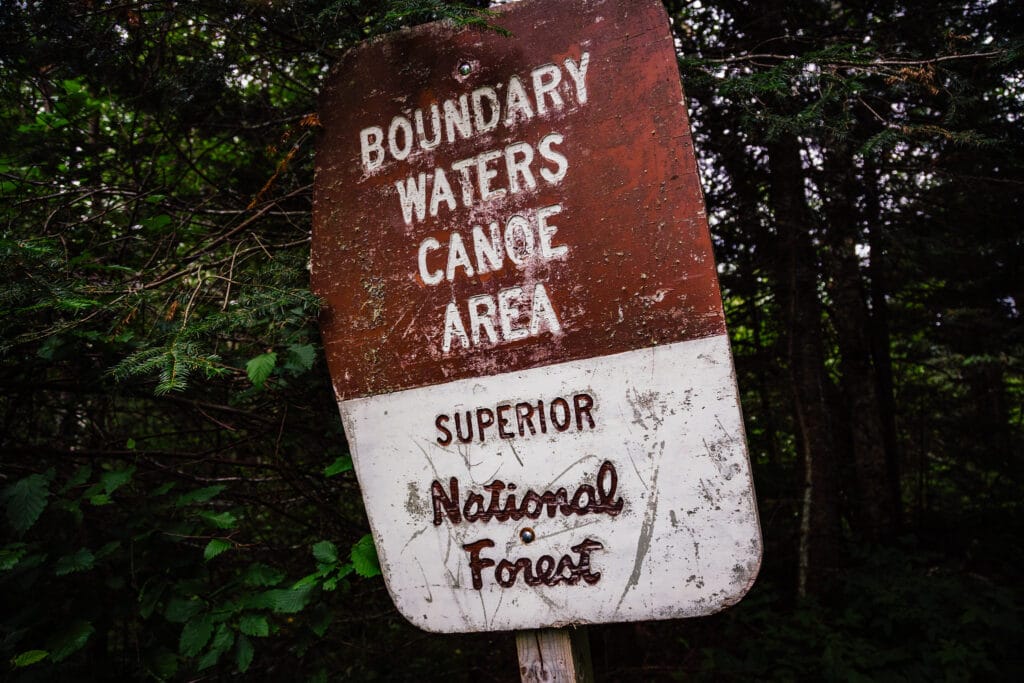
The Superior National Forest is cutting the number of available permits at entry points across the Boundary Waters Canoe Area Wilderness next year. The agency is making the move to address crowding and destructive behavior by some visitors.
Superior National Forest spokesperson Susan Catton told Bring Me The News that 24 of the wilderness’s 74 entry points will be affected, with most reductions being 1-2 quota per day. WTIP reports that, on the Gunflint Ranger District, 10 out of the 34 entry points will see a reduction, and on the Tofte District, quotas will be reduced for six of the 13 entry points.
“We are reducing quota across the forest at entry points where we frequently get comments from visitors about congestion, crowding, or natural resource degradation,” Superior National Forest Public Affairs Specialist Joanna Gilkeson told WTIP.
During a surge in visitorship the past two years, the Forest Service has reported an uptick in problems like group size violations, difficulty finding campsites, noisy campers, cutting live vegetation, and other actions degrading the wilderness.
The reductions will focus on entry points leading to areas where problems have been reported, and will be spread throughout the entire wilderness area. The agency says it is still working on the final numbers, which will be released soon. They say the reductions will not be drastic, according to the Duluth News Tribune.
Ely outfitter Jason Zabokrtsky told MPR News that he’s learned popular entry point Moose River North will be reduced from seven permits per day to five, and the Little Indian Sioux River North entry point will have daily permits reduced from six to four.
Ultimately, the move will take thousands of overnight hiking and paddling permits off the table for the May to September season.
“They’re taking actions that mean that a lot of people who want to go to the Boundary Waters won’t be able to because there won’t be a permit,” Zabokrtsky said. “And I think excluding people from experiencing the Boundary Waters doesn’t align with our mission as a business, or what I think is necessarily in the best interest of the wilderness and the people of Minnesota and the people around the country that love to visit this special place.”
Zabokrtsky said the Forest Service should instead expand its Leave No Trace education efforts, and hire more wilderness rangers, who enforce regulations and maintain facilities. Several ranger positions are currently vacant, which the Forest Service says they are working to fill.
Outfitters and the Forest Service all encouraged wilderness visitors to plan ahead and reserve entry permits early in the year. Reservations will open on Jan. 26, 2022 via recreation.gov.
More information:
- Forest Service to reduce quota numbers for BWCA in 2022 – WTIP
- Forest Service to cut entry permits into the Boundary Waters – MPR News
- Forest Service reducing permits for Boundary Waters – Duluth News Tribune

